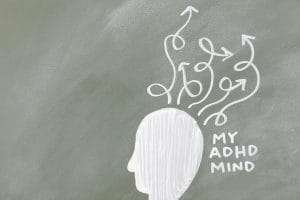Introduction
The human brain is perhaps the most remarkable organ in our body, a complex network of billions of neurons that controls our thoughts, memories, and actions. While we often focus on physical fitness as we age, maintaining brain health is equally crucial for overall wellness and quality of life. Cognitive health encompasses a range of mental processes including memory, learning, attention, language, and executive function. As we navigate our increasingly demanding world, these cognitive abilities become even more essential.

Memory, in particular, serves as a cornerstone of cognitive function. From remembering where we placed our keys to recalling important information for work or studies, memory impacts nearly every aspect of our daily lives. The good news is that memory isn’t a fixed capacity—it’s dynamic and responsive to our habits and lifestyle choices.
Recent advances in neuroscience have revealed that the brain maintains remarkable plasticity throughout life. This means that regardless of your age, you can take meaningful steps to protect, support, and even enhance your cognitive abilities. From nutritional approaches including targeted supplementation to mental exercises and lifestyle modifications, evidence-based strategies exist to help maintain and improve brain health.
In this comprehensive guide, we’ll explore practical, science-backed approaches to keeping your brain active and supporting memory and cognitive function. We’ll examine how nutrition, including essential vitamins and minerals, forms the foundation of brain health, and how specific habits can help you maintain mental sharpness throughout life’s journey.
Understanding Cognitive Health: The Basics of Brain Function Naturally
Before diving into strategies for improvement, it’s helpful to understand some fundamentals of how memory and cognitive function work. This knowledge provides context for why certain approaches are effective in supporting brain health.
The brain requires a tremendous amount of energy to function properly—despite making up only about 2% of our body weight, it consumes roughly 20% of our daily energy. This high metabolic demand means the brain is particularly sensitive to nutritional status and requires a steady supply of glucose, oxygen, and essential nutrients.
Memory formation involves several key brain regions, particularly the hippocampus, which plays a crucial role in consolidating information from short-term to long-term memory. This process relies on neuroplasticity—the brain’s ability to form new neural connections throughout life. Research published in the journal Nature Neuroscience has demonstrated that neuroplasticity continues even into older adulthood, though it may require more concerted effort to activate these processes as we age (1).
Cognitive function also depends heavily on neurotransmitters—chemical messengers that facilitate communication between neurons. Key neurotransmitters for learning and memory include acetylcholine, dopamine, serotonin, and norepinephrine. The synthesis of these crucial brain chemicals requires specific nutrients, including various B vitamins, amino acids, and minerals.
Additionally, the brain is highly susceptible to oxidative stress and inflammation, which can damage neurons and impair function over time. Antioxidants and anti-inflammatory compounds play important protective roles in maintaining brain health and may help slow age-related cognitive changes.
Understanding these biological fundamentals helps explain why nutrition, mental exercise, physical activity, and lifestyle factors all significantly impact cognitive health. Each of these approaches targets different aspects of brain function and, when combined, can provide comprehensive support for memory and cognitive abilities.
Nutritional Foundations for Brain Health
The brain’s complex operations require a diverse array of nutrients. While no single food or supplement provides a magic solution for cognitive health, ensuring adequate intake of key nutrients forms the foundation of brain function and protection. A balanced diet rich in whole foods supplies many of these nutrients, but targeted supplementation can help fill gaps and provide therapeutic amounts of compounds that support cognition.
Essential Vitamins for Brain Function
Several vitamins play particularly crucial roles in brain health:
B Vitamins: The B vitamin complex is intimately involved in numerous brain processes. A landmark study published in the Proceedings of the National Academy of Sciences found that B vitamin supplementation slowed brain atrophy in older adults with memory concerns (2). Specific B vitamins with strong connections to brain health include:
- B1 (thiamine): Critical for brain glucose metabolism
- B6 (pyridoxine): Essential for neurotransmitter synthesis
- B9 (folate): Supports DNA synthesis and repair
- B12 (cobalamin): Required for myelin maintenance and proper neurological function
Vitamin D: Once recognized primarily for bone health, vitamin D is now understood to have profound effects on brain function. Vitamin D receptors are widespread throughout the brain, and research published in JAMA Neurology found that vitamin D deficiency was associated with substantially increased risk of cognitive decline (3). According to the study, older adults with severe vitamin D deficiency were more than twice as likely to experience significant cognitive decline compared to those with adequate levels.
Vitamin E: As a potent antioxidant, vitamin E helps protect brain cells from oxidative damage. Research published in Archives of Neurology found that higher vitamin E intake was associated with reduced risk of cognitive decline in older adults (4). While excessive supplementation should be avoided, ensuring adequate vitamin E through a comprehensive multivitamin may provide neuroprotective benefits.
Minerals That Matter for Memory
Several minerals play key roles in cognitive function:
Magnesium: This mineral regulates neurotransmitter release and NMDA receptors, which are involved in learning and memory. Research published in the journal Neuron demonstrated that increasing brain magnesium improved learning abilities and memory in animal models (5). Magnesium deficiency is relatively common in Western populations, making supplementation potentially beneficial for many individuals.
Zinc: Essential for neurotransmitter function and regulation of brain-derived neurotrophic factor (BDNF), zinc influences both neuroplasticity and neurogenesis (the birth of new neurons). A study published in the Journal of Trace Elements in Medicine and Biology found associations between zinc deficiency and cognitive impairment (6).
Iron: Critical for oxygen transport to the brain and synthesis of neurotransmitters, iron deficiency, even without anemia, can impair cognitive function. This is particularly important for women requiring women’s iron-deficiency supplements to maintain optimal cognitive performance. Research shows that addressing iron deficiency can help enhance focus and attention in affected individuals.
Calcium: While often associated with bone health, calcium also plays a crucial role in neurotransmission. Calcium supplements for bone health provide dual benefits, supporting both skeletal strength and neural signaling. Calcium bone density supplements are particularly important for aging populations who may experience concurrent bone loss and cognitive changes.
Omega-3 Fatty Acids: Brain Structural Support
Omega-3 fatty acids, particularly docosahexaenoic acid (DHA), are essential components of brain cell membranes. DHA makes up approximately 30% of the fatty acids in the brain’s gray matter and is critical for neuronal membrane fluidity and function.
Research published in the American Journal of Clinical Nutrition found that higher blood levels of omega-3s were associated with larger brain volumes and better cognitive performance (7). This structural support is vital for maintaining cognitive function, especially as we age. While fatty fish is the primary dietary source of these important compounds, supplementation can help ensure consistent intake, particularly for those who don’t regularly consume fish or follow vegan nutrition for men and need plant-based alternatives.
Immune System Connection to Brain Health
Emerging research reveals a strong connection between immune function and cognitive health. Immune system support supplements can protect against neuroinflammation, which is linked to cognitive decline. Nutrient-rich immune support formulations often contain antioxidants, vitamins, and minerals that serve dual purposes, enhancing both immune function and brain health. For those seeking to maintain overall wellness, daily immune health supplements can provide ongoing protection against both physical illness and cognitive decline.
Glam Dust
Radiant Skin – Luscious Hair – Pristine Nails
Vitamin Shots
The ultimate brain and body supplements
Vitamin Sprinkles
The ultimate brain and body supplements
Lifestyle Approaches to Enhance Cognitive Function
While nutrition forms the foundation of brain health, our daily habits and activities also profoundly influence cognitive function. Research consistently shows that certain lifestyle practices can enhance neuroplasticity, support memory formation, and protect against cognitive decline.

Physical Exercise: A Brain Booster
Perhaps counterintuitively, one of the most effective ways to improve brain function doesn’t directly involve mental activity at all—it’s physical exercise. Regular physical activity increases blood flow to the brain, promotes the release of growth factors that support neuronal health and connectivity, and has been shown to increase the volume of the hippocampus, a brain region crucial for memory.
A study published in the British Journal of Sports Medicine examined the effects of exercise on cognitive function in older adults. The researchers found that moderate-intensity exercise performed regularly improved cognitive function, including memory, attention, and processing speed (8). Even more encouraging, these benefits were observed even in previously sedentary individuals who began exercising later in life.
Aim for at least 150 minutes of moderate-intensity exercise per week, including both aerobic activities and strength training. Even short bursts of activity throughout the day can contribute to these cognitive benefits. For those needing extra support, exercise energy boosters and workout essentials supplements can help overcome fatigue barriers and maximize workout efficiency.
Fitness nutrient supplements and vitamins for endurance training play a crucial role in supporting both physical performance and cognitive benefits of exercise. Endurance-boosting vitamins for athletes not only enhance physical stamina but also promote greater blood flow to the brain, maximizing cognitive benefits. For those seeking to optimize their fitness regimen, effective stamina support supplements can provide dual benefits for both physical and mental performance.
Mental Exercise: Challenging Your Brain
Just as physical exercise strengthens the body, mental exercise strengthens the brain. Cognitive stimulation through mentally challenging activities helps build cognitive reserve, the brain’s resilience to damage or age-related changes.

Activities that require learning new skills, solving problems, or engaging multiple cognitive domains simultaneously appear particularly beneficial. These might include:
- Learning a new language or musical instrument
- Engaging in complex games like chess or bridge
- Taking courses in unfamiliar subjects
- Reading challenging material
- Solving puzzles and brainteasers
Research published in JAMA Psychiatry found that older adults who regularly engaged in cognitively stimulating activities had a reduced risk of cognitive decline (9). Importantly, the benefits were greatest for activities that were novel and challenging rather than routine and familiar.
For those seeking to enhance focus and attention throughout the day, combining mental exercises with targeted nutritional support can amplify benefits. Nutritional supplements for eyesight can also support visual processing, an important component of many cognitive tasks.
Quality Sleep: Memory Consolidation
Sleep isn’t merely rest for the brain—it’s an active time when memories are consolidated and neural connections are strengthened. During deep sleep, the brain processes information acquired during the day, transferring important memories from short-term to long-term storage.

Research published in SLEEP demonstrated that even a single night of poor sleep could significantly impair memory formation (10). Chronic sleep disruption has been linked to more serious cognitive consequences, including increased risk of dementia.
Prioritize sleep hygiene by maintaining a consistent sleep schedule, creating a dark and quiet sleeping environment, limiting screen time before bed, and avoiding caffeine and alcohol close to bedtime. Most adults need 7-9 hours of quality sleep per night for optimal cognitive function.
Stress Management: Protecting Brain Cells
Chronic stress can damage the hippocampus and impair memory formation. When we’re stressed, the body releases cortisol, which at chronically elevated levels can interfere with neurotransmitter function and even cause atrophy in certain brain regions.

Understanding the connection between vitamin deficiencies and stress is crucial for comprehensive brain health. Studies show that B-vitamin deficiencies, in particular, can exacerbate stress responses and impair cognitive function. Effective natural stress solutions can help address both the physiological and psychological aspects of stress.
Effective stress management techniques include:
- Mindfulness meditation
- Deep breathing exercises
- Yoga or tai chi
- Time in nature
- Social connection
- Safe natural stress relief remedies like adaptogenic herbs
A study published in Psychoneuroendocrinology found that regular mindfulness practice was associated with lower cortisol levels and improved cognitive performance under stress (11). Even brief daily meditation sessions can help mitigate the effects of chronic stress on brain health. For those seeking additional support, natural stress relief options can complement behavioral approaches to stress management.
Evidence-Based Strategies for Maintaining Cognitive Health and Preventing Memory Loss
Research consistently shows that a healthy diet is one of the best ways to keep your brain healthy and may be linked to a lower risk of cognitive decline and dementia. One study found that adults with mild cognitive impairment who followed specific cognitive training programs demonstrated improvements in short-term memory and spatial memory compared to healthy adults who didn’t receive such interventions.

Harvard Health Publishing emphasizes that brain exercises and learning new skills can help your brain maintain brain plasticity, which may help improve cognitive function throughout life. The Mayo Clinic Health System recommends at least 150 minutes of physical activity weekly to help keep your brain in shape, as one study showed increased brain volume in participants who exercised regularly, potentially reducing brain atrophy among older adults.
Harvard Medical School suggests that ways to keep cognitive fitness include activities that challenge the brain, supporting the growth of new brain cells in parts of the brain responsible for memory and mental function. The National Institute on Aging reports that controlling blood pressure and cholesterol levels significantly decreases the risk of developing dementia and may improve memory retention in later years.
Playing brain games and taking memory tests can be beneficial for the brain, with one study suggesting that brain training might preserve cognitive function and support brain health in older populations. While certain supplements may contribute to cognitive health, dietary supplements alone cannot protect your memory without other lifestyle interventions. A memory study published by Harvard Health found that people who engaged in ongoing cognitive stimulation had better cognitive outcomes and fewer memory problems later in life. Get tips on preventing cognitive decline in older adults by focusing on brain structure maintenance through overall brain-supporting activities below.
Supplements for Cognitive Enhancement
While a healthy lifestyle forms the foundation of brain health, targeted supplementation can provide additional support for cognitive function. A high-quality multivitamin ensures adequate levels of essential nutrients, while specialized supplements may offer specific cognitive benefits.
Comprehensive Multivitamins: The Foundation
A well-formulated multivitamin provides a range of nutrients that support brain health in a single supplement. This approach ensures broad nutritional coverage, addressing potential deficiencies that could impact cognitive function. Look for multivitamins that contain effective forms and doses of key nutrients for brain health, including B vitamins, vitamin D, vitamin E, magnesium, and zinc.
For those following plant-based diets, plant-based multivitamin options and vegan liquid multivitamins provide excellent alternatives to conventional supplements. These best plant-based supplements ensure that vegans and vegetarians receive essential nutrients that might otherwise be difficult to obtain through diet alone. Non-GMO plant-based liquid vitamins offer additional benefits of high absorption rates and are suitable for those who have difficulty swallowing pills.
Research published in Alzheimer’s & Dementia found that multivitamin supplementation was associated with improved global cognition, particularly in older adults (12). The researchers suggested that addressing multiple nutrient needs simultaneously may have synergistic effects on brain health.
Specialized Cognitive Supplements
Beyond basic nutrition, several specialized supplements have shown promise for enhancing specific aspects of cognitive function:
Phosphatidylserine (PS): This phospholipid supports cell membrane structure in neurons and facilitates neurotransmitter release. A comprehensive review published in Nutrition found that PS supplementation improved memory, concentration, and word recall in adults with age-associated memory impairment (13).
Bacopa Monnieri: With centuries of use in traditional Ayurvedic medicine, Bacopa contains compounds called bacosides that protect neurons and enhance certain neurotransmitter systems. A meta-analysis published in the Journal of Ethnopharmacology concluded that Bacopa significantly improved memory acquisition and retention in healthy adults (14).
Citicoline (CDP-Choline): This compound supports the synthesis of phosphatidylcholine (a major component of brain cell membranes) and acetylcholine (a key neurotransmitter for learning and memory). Research in the Journal of Clinical Psychopharmacology demonstrated that citicoline supplementation improved attention and executive function (15).
Lion’s Mane Mushroom: This medicinal mushroom contains compounds that may stimulate nerve growth factor (NGF) production, supporting the growth and maintenance of neurons. A study in Phytotherapy Research found that Lion’s Mane supplementation improved cognitive function in adults with mild cognitive impairment (16).
For those seeking to optimize cognitive performance throughout the day, long-lasting energy boosters can support mental clarity without the crashes associated with caffeine or sugar. Women’s energy-boosting supplements often contain synergistic ingredients that address hormonal factors that can impact energy levels and cognitive function. Premium stamina-enhancing vitamins provide sustained mental energy support for demanding cognitive tasks.
Support for Holistic Well-being
For those concerned about overall wellness, supplements like skin vitamins for anti-aging can support both cognitive health and appearance. Ingredients like vitamin C, vitamin E, and CoQ10 provide antioxidant benefits that protect both brain cells and skin cells from oxidative damage. Skin vitamins for youthful appearance and skin vitamins for glowing complexion often contain nutrients that support both neurological and dermatological health through similar mechanisms.
When considering specialized supplements, it’s important to:
- Choose quality products from reputable manufacturers
- Start with one supplement at a time to monitor effects
- Be patient—many cognitive supplements require consistent use for 4-12 weeks before benefits become apparent
- Consult with a healthcare provider, especially if you have existing health conditions or take medications
Glam Dust
Radiant Skin – Luscious Hair – Pristine Nails
Vitamin Shots
The ultimate brain and body supplements
Vitamin Sprinkles
The ultimate brain and body supplements
Practical Brain-Boosting Habits for Daily Life
Beyond formal exercise and supplementation, integrating brain-healthy habits into everyday life can provide ongoing support for cognitive function. These practical approaches can be easily incorporated into daily routines:
Cognitive Cross-Training
Like cross-training in physical exercise, varying your mental activities engages different brain regions and builds more comprehensive cognitive resilience. Aim to include activities that challenge different cognitive domains:
- Verbal memory and language (reading, storytelling, word games)
- Visual-spatial skills (drawing, navigation, jigsaw puzzles)
- Logic and reasoning (strategic games, mathematical problems)
- Processing speed (timed challenges, quick decision-making games)
By regularly engaging in diverse mental activities, you build broader cognitive reserve that can better withstand age-related changes or challenges.
Social Engagement
Meaningful social interaction provides complex cognitive stimulation while also reducing stress and supporting emotional wellbeing. Research consistently shows that people with stronger social connections maintain better cognitive function as they age.
A longitudinal study published in the American Journal of Public Health found that older adults with larger social networks exhibited less cognitive decline over a 12-year period (17). The researchers noted that social interaction provides mental stimulation while also potentially reducing stress and improving mood, factors that independently support brain health.
Look for opportunities to engage in meaningful conversation, participate in group activities, volunteer, or join clubs or classes that provide both social connection and cognitive stimulation.
Mindful Eating Patterns
In addition to specific nutrients, overall eating patterns influence cognitive health. The Mediterranean and MIND (Mediterranean-DASH Intervention for Neurodegenerative Delay) diets have shown particular promise for supporting brain function.
These diets emphasize:
- Abundant vegetables and fruits
- Whole grains
- Healthy fats from olive oil, nuts, and fish
- Limited processed foods and added sugars
For those needing additional nutritional support, best supplements for improved stamina can enhance both physical and mental endurance throughout the day. Plant-based iron supplements offer sustainable energy support for those following vegetarian or vegan diets.
Research published in Alzheimer’s & Dementia found that adherence to the MIND diet was associated with slower cognitive decline and reduced risk of Alzheimer’s disease (18). While supplements can help fill nutritional gaps, building meals around these brain-healthy eating patterns provides a strong foundation for cognitive health.
Enhanced Nutrition for Specific Needs
Addressing specific nutritional needs can further support cognitive function. For example, diet tips for stronger nails often include nutrients like biotin, silicon, and zinc—all of which also benefit neural health. Long-lasting endurance support supplements typically contain adaptogenic herbs that help the body respond to stress, benefiting both physical stamina and mental resilience.
For those with specific health goals, vitamin support for immunity and immunity boosters for sale can help protect against infections that might otherwise drain energy and cognitive resources. Many essential vitamins for workouts also serve as exercise energy boosters, supporting both physical performance and the cognitive benefits of exercise.
Conclusion
Maintaining and improving memory and cognitive function involves a multifaceted approach that addresses the brain’s complex nutritional and lifestyle needs. From ensuring adequate intake of essential nutrients through diet and targeted supplementation to engaging in physically and mentally stimulating activities, evidence-based strategies exist to support brain health at every stage of life.
The brain’s remarkable plasticity means that it’s never too late to begin implementing these cognitive-enhancing practices. Whether you’re a student looking to optimize learning, a working professional aiming to maintain peak mental performance, or an older adult concerned about preserving cognitive function, the approaches outlined in this guide can help you achieve your brain health goals.
A comprehensive multivitamin supplement provides a convenient foundation, ensuring adequate levels of essential brain nutrients. This nutritional support can then be enhanced with specialized supplements based on individual needs and goals, alongside brain-healthy lifestyle practices like regular exercise, quality sleep, stress management, and cognitive stimulation.
By taking a proactive approach to brain health today, you invest in cognitive resilience for tomorrow, supporting not just memory and mental sharpness, but overall quality of life and independence in the years ahead.
Glam Dust
Radiant Skin – Luscious Hair – Pristine Nails
Vitamin Shots
The ultimate brain and body supplements
Vitamin Sprinkles
The ultimate brain and body supplements
References
Voss, M. W., Vivar, C., Kramer, A. F., & van Praag, H. (2013). Bridging animal and human models of exercise-induced brain plasticity. Trends in Cognitive Sciences, 17(10), 525-544.
Smith, A. D., Smith, S. M., de Jager, C. A., Whitbread, P., Johnston, C., Agacinski, G., … & Refsum, H. (2010). Homocysteine-lowering by B vitamins slows the rate of accelerated brain atrophy in mild cognitive impairment: a randomized controlled trial. PloS one, 5(9), e12244.
Miller, J. W., Harvey, D. J., Beckett, L. A., Green, R., Farias, S. T., Reed, B. R., … & DeCarli, C. (2015). Vitamin D status and rates of cognitive decline in a multiethnic cohort of older adults. JAMA neurology, 72(11), 1295-1303.
Morris, M. C., Evans, D. A., Tangney, C. C., Bienias, J. L., Wilson, R. S., Aggarwal, N. T., & Scherr, P. A. (2005). Relation of the tocopherol forms to incident Alzheimer disease and to cognitive change. The American journal of clinical nutrition, 81(2), 508-514.
Slutsky, I., Abumaria, N., Wu, L. J., Huang, C., Zhang, L., Li, B., … & Liu, G. (2010). Enhancement of learning and memory by elevating brain magnesium. Neuron, 65(2), 165-177.
Warthon-Medina, M., Moran, V. H., Stammers, A. L., Dillon, S., Qualter, P., Nissensohn, M., … & Lowe, N. M. (2015). Zinc intake, status and indices of cognitive function in adults and children: a systematic review and meta-analysis. European journal of clinical nutrition, 69(6), 649-661.
Pottala, J. V., Yaffe, K., Robinson, J. G., Espeland, M. A., Wallace, R., & Harris, W. S. (2014). Higher RBC EPA+ DHA corresponds with larger total brain and hippocampal volumes: WHIMS-MRI study. Neurology, 82(5), 435-442.
Northey, J. M., Cherbuin, N., Pumpa, K. L., Smee, D. J., & Rattray, B. (2018). Exercise interventions for cognitive function in adults older than 50: a systematic review with meta-analysis. British Journal of Sports Medicine, 52(3), 154-160.
Wilson, R. S., Segawa, E., Boyle, P. A., & Bennett, D. A. (2012). Influence of late-life cognitive activity on cognitive health. Neurology, 78(15), 1123-1129.
Cousins, J. N., Fernández, G., & van Dongen, E. V. (2018). The impact of sleep deprivation on declarative memory consolidation: Direct evidence from human neuroimaging. Current Opinion in Behavioral Sciences, 20, 86-92.
Creswell, J. D., Taren, A. A., Lindsay, E. K., Greco, C. M., Gianaros, P. J., Fairgrieve, A., … & Ferris, J. L. (2016). Alterations in resting-state functional connectivity link mindfulness meditation with reduced interleukin-6: a randomized controlled trial. Biological Psychiatry, 80(1), 53-61.
Rutjes, A. W., Denton, D. A., Di Nisio, M., Chong, L. Y., Abraham, R. P., Al-Assaf, A. S., … & Vernooij, R. W. (2018). Vitamin and mineral supplementation for maintaining cognitive function in cognitively healthy people in mid and late life. Cochrane Database of Systematic Reviews, (12).
Glade, M. J., & Smith, K. (2015). Phosphatidylserine and the human brain. Nutrition, 31(6), 781-786.
Pase, M. P., Kean, J., Sarris, J., Neale, C., Scholey, A. B., & Stough, C. (2012). The cognitive-enhancing effects of Bacopa monnieri: a systematic review of randomized, controlled human clinical trials. Journal of alternative and complementary medicine, 18(7), 647-652.
McGlade, E., Locatelli, A., Hardy, J., Kamiya, T., Morita, M., Morishita, K., … & Yurgelun-Todd, D. (2012). Improved attentional performance following citicoline administration in healthy adult women. Food and Nutrition Sciences, 3(6), 769-773.
Mori, K., Inatomi, S., Ouchi, K., Azumi, Y., & Tuchida, T. (2009). Improving effects of the mushroom Yamabushitake (Hericium erinaceus) on mild cognitive impairment: a double-blind placebo-controlled clinical trial. Phytotherapy Research, 23(3), 367-372.
Ertel, K. A., Glymour, M. M., & Berkman, L. F. (2008). Effects of social integration on preserving memory function in a nationally representative US elderly population. American Journal of Public Health, 98(7), 1215-1220.
Morris, M. C., Tangney, C. C., Wang, Y., Sacks, F. M., Bennett, D. A., & Aggarwal, N. T. (2015). MIND diet associated with reduced incidence of Alzheimer’s disease. Alzheimer’s & Dementia, 11(9), 1007-1014.


.png)
